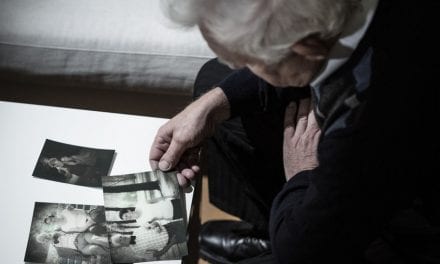Some of us have loved ones living in the communities we operate, invest in and provide services to.
By Mary Ann Donaghy
It’s the day after Christmas — a time when so many of us are taking a reprieve to enjoy family and friends. Some of us have loved ones living in the communities we operate, invest in, and provide services to.
We are all dedicated to creating environments where residents, and often our family members, can thrive. In that spirit, this post is not about data, or industry news, or conferences. It’s a personal perspective about what it means to make lives more joyful, meaningful, and healthy for residents.
It Is Personal
Four years ago this Spring, my mother, who is one of my best friends and my biggest inspiration for living a life with positivity and laughter, had a massive brain bleed. She was 83 years old.
After weeks of rehab, her neurologist shared the news that she’d no longer be able to live at home — we needed to start looking at assisted living communities. I had no choice but to begin exploring options, accompanied by a lot of fear (will she hate it? Will they take good care of her?) and guilt (none of the five kids’ homes were options).
I was not yet working in the senior living sector, so I wasn’t armed with all the information and perspective I have today. But we kept an open mind, hoping to find a place where she would feel at home, and in which four siblings and I would feel confident that she’d be well cared for.
Expectations
After looking at six communities, we selected one that felt right — caring staff, a warm ambiance, nicely appointed apartment, quality dining, ample activities, and a gathering place for music and happy hour. As hopeful as we were, I’ll never forget her saying, as she sat in her new bedroom, “I know I’m going to die here”. My heart sank. But we remained optimistic about the life she could have there and the loving care she’d receive.
Our expectations couldn’t begin to match what we watched unfold.
Reality
My mother quickly fell in love with the staff (who she fondly calls “the girls”), found a group of ladies to have lunch with, gradually started taking part in outings, and even found a “beau” who keeps her company an hour or two a day.
She looks forward to her twice daily trips to get her medicines and eye drops because it gives her a chance to chat up the nursing staff. And, if she forgets, they bring the medicines to her and she’s delighted to see them.
She makes her way downstairs every morning to get coffee and a danish, which she miraculously balances on the seat of her walker and brings back up to enjoy in her apartment. She does laps around the hallways to keep herself moving and makes her way back downstairs over the course of the day to socialize and chat with her new friends — she remembers few of their names, but greets them with compliments and takes a sincere interest in them.
As I walked into her community a few days ago after a long drive to Cincinnati from Annapolis, I felt, as I always do here, a warmth and kindness that does my heart good. I was welcomed by enthusiastic greetings from staff I’ve grown to know and love, hear my mother asked if she is planning to come to dinner, see the grand holiday decorations transform the lobby and each of the four levels, and residents offer to help me up with my bags of gifts.
I’ll always remember the delight and pride she had the next morning when she brought back to her apartment the candies she had made in that morning’s activity.
What We Do is the Real Deal
Over the past 15 months of working in the seniors housing and care sector, I have heard many speakers at conferences talk about studies proving the importance of community and human connectivity and interactions on emotional, psychological and physical health.
I see that first-hand in the life of my mother. Her life is full. Her life is better than if she lived in her old house or in the home of one of her children. During this holiday season, when we take a little extra time to focus on the love of family and friends, I recognize that although my mother may indeed die here, more importantly, she is living here. Living a good life, surrounded by caring people who love her, just as her children do. In these moments, I am so grateful and proud to work in this industry. We are helping residents live their best lives.
Wishing you and yours all the best for the holiday season and 2019.
This article first appeared at the NIC Blog on December 27, 2018, and is published with permission.








